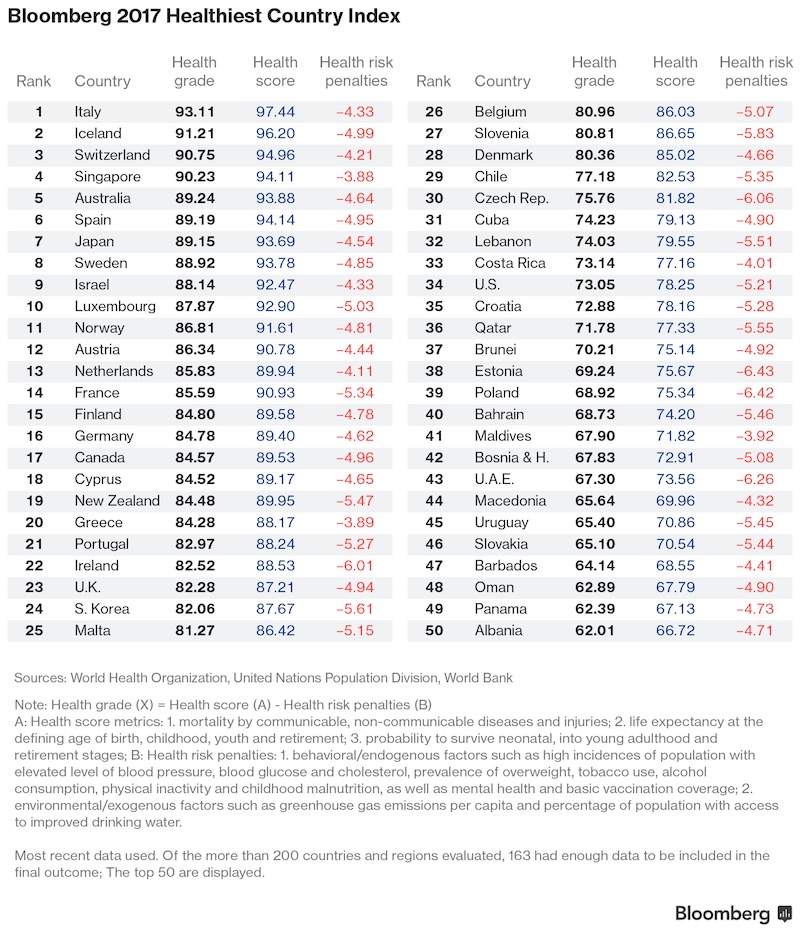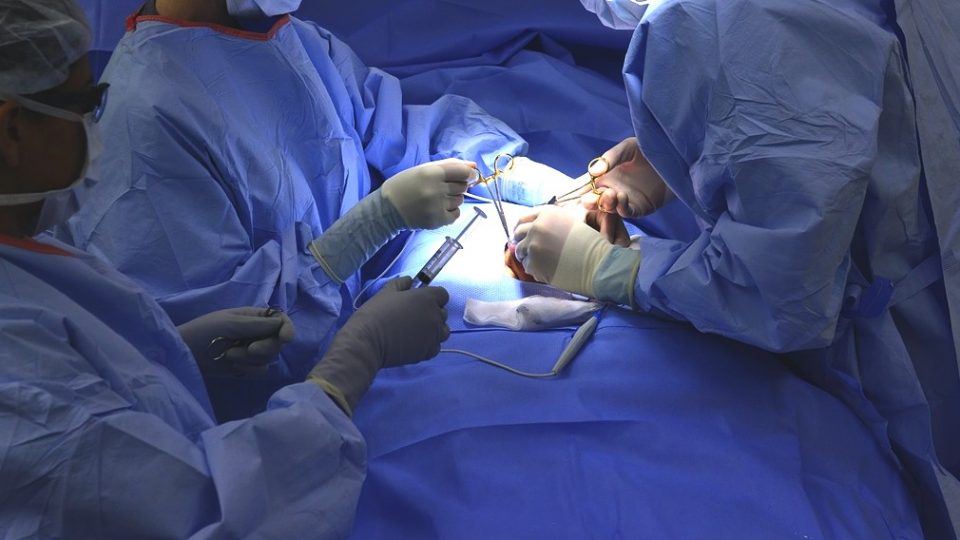A recent release of data in the Bloomberg 2017 Healthiest Country Index ranked Singapore fourth in the top 50 healthiest countries in the world, with a health grade barely exceeding 90 points to boot. We’re still preceded, however, by Italy, Iceland and Switzerland in the first to third rankings respectively.

This still puts Singapore in the top spot for the healthiest country in Asia, beating the likes of Japan by three ranks — not that Japanese people don’t have the tendency to outlive most Singaporeans since they have their countryside to thank — and South Korea, which placed 24th in the charts. Let’s just take a moment to give ourselves a pat on the back for snagging yet another title under our belts.
The result this year might look surprising despite various global data reports over the years citing Singapore as the city with the least amount of sleep on average, but really, it’s Singapore’s healthcare efficiency that contributed to its current standing.
From Bloomberg’s prior data gathered in 2014, Singapore ranked first for most healthcare per dollar (while ranking 12th overall at the time), which – thanks to our Big G – is contributed by our ever expanding healthcare facilities and a government mandate that sets aside a portion of citizens’ salaries for healthcare. Of course, the companies behind our highly advanced medical technologies deserve a special shout out as well.
Given that only four Asian countries made it to the top 50, perhaps that explains why there isn’t a lot of competition among Asia?
Bloomberg’s Healthiest Country Index, the calculation of each country’s health grade, is determined by taking the overall score generated from factors such as life-expectancy and the probability to survive childhood and retirement, and deducting points from any existing factors that are detrimental, such as health risks or tobacco use in the country.




